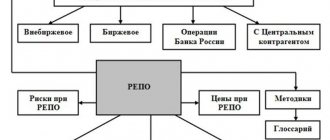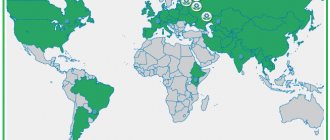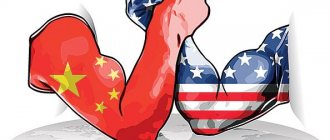What are transnational corporations in simple words
Transnational corporations (TNCs) are companies that own production in different countries.
When people talk about such companies, they imagine giant business empires. However, not all multinational corporations have this scale. These include those who meet the following conditions:
- The presence of divisions that are located in more than two or more countries.
- Availability of a common management system. Such corporations apply a common strategy and a single policy.
- Individual companies are connected in such a way that one or more of them has significant influence over the priorities and activities of the others.
The following classification applies to them:
- Actually, transnational corporations are those that are led from one center. They usually have a center in one country and branches in others. Ownership of the assets of the entire corporation lies with representatives of the country where the headquarters is located.
- Multinational corporations include firms located in two or more countries. The headquarters can be located in any of them.
- The basis of international corporations are national monopolies. In the process of their development, they secured themselves with foreign assets.
- Global has branches and subsidiaries in a large number of countries around the world.
They can also be separated depending on the type of integration used. She may be:
- Vertical. The products of some companies are used to work in others. Thus, sales are guaranteed for the former. The mixed type includes those companies where both types of integration are used simultaneously. Such .;
- Horizontal. Those who specialize in producing similar products in different countries of the world. An example in this case would be McDonald's Corporation;
- Diversified;
general description
TNCs are firms operating in two or more countries, managing their divisions from one or more centers. This definition was given by the UN. In a narrow sense, a TNC is an association of a private main organization whose capital is located in the country of origin (origin) and in divisions operating in host countries. The latter are relatively independent companies. They function in sectors of the national economic complex of the host countries, participate in their foreign economic relations for purposes consistent with the tasks and interests of the main organization. Depending on their status, divisions act as subsidiaries or branches. There are also associations.
The basis of TNK
It is worth noting that TNC (this is how a transnational corporation is abbreviated) is the last stage of international cooperation of legal entities. Before this, the enterprise can be an open partnership or a limited liability company.
Another option is to create cartels - participants jointly regulate production volumes and the process of hiring workers.
The third method of international cooperation is syndicates, which imply coordinated actions in the purchase of raw materials and the sale of goods (from the total purchase of oil, one company can produce gasoline, and another rubber).
The fourth variant of cooperation is a concern where only the management of financial activities is common, while the individuals themselves are constantly engaged in different types of activities (one branch of the company is engaged in sewing sportswear, and the other is engaged in military uniforms).
The closest in its characteristics to a TNC is a trust - companies merge one of the areas of production, having common sales and finances in it (for example, joint production of aircraft engines and the constant production of instruments for aircraft by one side and passenger seats by the other). After the enterprise has experienced at least several similar cooperations, it can expand to the scale of a multinational corporation.
What is a TNC?
Before moving on to specific data, it is worth understanding what multinational corporations are. The list of their distinctive features is very long, but the main one is the presence of company capital in several countries around the world.
Despite the fact that enterprises of this scale are not located entirely in the territory of a certain country, they are still forced to obey the laws of the state where a specific branch of the corporation operates.
In addition, even state-owned enterprises can become part of a TNC, and the agreements that result in such cooperation can be both intergovernmental and private, between investors from different countries.
Branches
They are separate units. A TNK branch is a self-governing branch that does not have its own property or shares. Such a division is subordinate to the management of the main company and transfers all income to it. The TNC branch differs from other branches in that the parent organization creates an enterprise and registers it as a national legal entity.
Classification
TNCs are often divided into three large groups:
- Horizontally integrated multinationals operate divisions located in different countries that produce the same or similar products.
- Vertically integrated multinationals operate units in a particular country that produce goods that are supplied to their units in other countries.
- Separate MNCs - manage divisions located in different countries that are not vertically or horizontally integrated.
Controlling stake
One of the key features of TNCs is mononationality. It assumes the priority of the currency of one country over the finances of other countries. The controlling interest is concentrated in the main company. Its headquarters are located in its home country. Meanwhile, the capital of the corporation, which is the property of foreign investors, must be at least 25% of the total property mass (all shares). Otherwise, such an organization cannot be considered a TNC. It will simply be a large company with separate divisions abroad. If the controlling interest is dispersed across several firms that belong to different countries, then it will be an MNE.
The history of the emergence of TNCs
The term "transnational corporation" did not appear until the late 1970s, although the British East India Company was able to trade in India as early as 1600 - so can lay claim to being the first multinational corporation. However, according to a more established view, the first TNCs were the monopolies of the leading world powers at the end of the 19th century - trusts that were formed as a result of the merger of small firms. They extracted raw materials and resources in the colonies: Africa, Asia and Latin America.
From 1918 to 1945 There were world wars, which created a need for weapons and specialized equipment. A large number of companies were created to meet these needs, and some firms also changed their activities. This can be considered a prerequisite for the emergence of numerous TNCs - before the start of World War II, there were only about 300 large corporations in the world.
After the end of the wars, many countries lacked their own products, so companies began to sell their goods in other countries. In the 70s, when the economies of states recovered from the war shocks, a new wave of mergers and acquisitions began, caused by growing competition and the desire of enterprises to gain leading positions in the market. At the end of the millennium, there were already almost 60,000 TNCs and more than 500,000 of their branches in the world.
When companies merge and grow, their size and turnover increase, which allows them to achieve economies of scale in production. This effect is characterized by a reduction in the cost of a unit of production, and, consequently, a more advantageous position of the company in the market. Although, on the other hand, it can lead to the formation of monopolies and the ruin of small competitors through dumping prices.
fuel and energy complex
The most competitive Russian TNCs operate in the fuel and energy complex. Their main activities are oil production and refining. One of the largest companies at one time was TNK-BP. The name of the holding came from the names of the co-founders. The headquarters was located in Moscow. TNK-BP was founded in 2003 on a parity basis. Tyumen and British companies participated in the formation of the holding.
In 2012, in October, the sale of the organization to Rosneft was announced. In 2013, on March 21, the deal was completed. TNK gas stations were located in various regions of the country. It was a fairly large network of stations. In the early 2000s, TNK gas stations began to be created on the territory of neighboring countries. Thus, in 2001, the Lisichansky Oil Refinery, which was then in a state of bankruptcy, was purchased. After the creation of a joint venture with British investors, some factories were sold. Currently, 100% of the shares belong to Rosneft.
Role in the global economy
Transnational corporations have enormous resources. The largest of them have more funds than some countries. According to data at the beginning of the 21st century, there are 80 thousand TNCs and 850 thousand of their branches and subsidiaries in the world. In the modern world, the most powerful are those who work in the oil and gas or banking sectors.
They account for 50% of industrial production, 80% of patents and 63% of foreign trade turnover worldwide. Approximately 500 of the largest TNCs are considered the core of the world economy.
The British newspaper Financial Times publishes information about the largest TNCs in the world. In terms of capitalization, General Electric (USA) ranks first on their list, followed by Royal Dutch Shell Group (Britain, Holland) and Microsoft (USA).
Conclusion
Transnational corporations in the global economy play a huge role in shaping the global market and creating certain conditions there. The activities of TNCs influence many areas and projects; they have access to almost all markets in the world. But it is impossible to say unequivocally that they are the future, since there is too much competition from the national manufacturer.
This is interesting! Studying the role of the individual in the affairs of the state: what is the essence of the rule of law
The role of TNCs
The role of transnational corporations is ambiguous. These are truly huge companies with significant assets, revenues and profits that are many times greater than the GDP of small African states. They account for approximately half of the world's industrial production and about 2/3 of world trade. Many people work there; they can be city-forming enterprises.
The power of transnational corporations is obvious. With so many financial resources and the need to compete with other similar companies, MNCs are the driving force behind technological progress. These firms also often host social events to win over clients.
positive aspects of TNCs can be highlighted :
usually high-quality and affordable products
a large number of secure jobs
innovative activity
social activities
On the other hand, transnational corporations are essentially monopolies. This makes it difficult for other players to enter the market, which negatively affects the end consumer. Smaller firms may not be able to meet existing price or time constraints, even if their product is unique and of high quality.
The state supports TNCs with subsidies, since the economic stability of the country depends on them. In addition, transnational companies, due to the specifics of their structure, can legally bypass existing tax legislation, which greatly reduces their tax burden.
Thus, the negative aspects of TNCs :
restriction of competition
underpayment of taxes
setting your own standards
significant impact on the economies of countries
Charter 1972
This document was to become decisive in regulating the work of TNCs in developed countries. Article 2 of the Charter established the right of each country:
- Regulate and control foreign investments within the scope of national jurisdiction, in accordance with their laws and regulations. According to national goals and priorities, no country can be forced to provide preferential conditions to foreign capital.
- Regulate and control the work of TNCs within their jurisdiction, take measures aimed at ensuring that the activities of such organizations comply with laws, regulations, norms, and socio-economic policies. Holdings should not interfere in any internal affairs of the country.
- Expropriate, nationalize, or transfer foreign property.
At America's initiative, the significance of this Charter gradually began to decrease. In 1987, the UN General Assembly discussed the Concept of World Economic Security. It was in many ways close to the Charter, but it lacked the basic apparatus necessary to implement the provisions in the form of a system of responsibilities and rights of countries. Accordingly, the Concept was impossible to implement.
Rating by level of foreign assets
But we can also look at transnational corporations from the other side. The list of the world's largest companies by level of foreign assets (that is, the share of foreign countries in the company's capital) is as follows:
- General Electric (energy, USA).
- Vodafone Group Plc (telecommunications, UK).
- Royal Dutch/Shell Group (oil and gas sector, Netherlands/UK).
- British Petroleum Company Plc (oil and gas sector, UK).
- ExxonMobil (oil and gas sector, USA).
- Toyota Motor Corporation (automotive industry, Japan).
- Total (oil and gas sector, France).
- Electricite De France (housing and communal services, France).
- Ford Motor Company (automotive industry, USA).
- E.ON AG (housing and communal services, Germany).
Here the situation is slightly different from the ranking of the richest companies: the geography is much broader, and the areas of interest are different.
WAYS TO IMPROVE THE REGULATION OF INVESTMENT ACTIVITIES OF TNCs IN THE RUSSIAN MARKETS
3.1 Management of investment processes within the framework of the concept of innovative development of Russia
3.2.Measures to improve the investment policy of Russia within the framework of the activities of TNCs
Currently, Russian corporations face a number of problems that impede their successful functioning and strengthening their influence on the global economy.
Firstly, the competitive advantages of Russian TNCs are based on natural resources (raw materials TNCs) or significant labor resources (service companies - telecommunications and the banking sector). While these sectors are generally inaccessible to foreign direct investment. This phenomenon is called the phenomenon of “resource nationalism”.
Secondly, a serious problem for Russian TNCs is the presence of competition for the acquisition of assets from foreign TNCs, which are more prepared to compete in the world market, both financially and technologically.
Thirdly, Russian TNCs can be absorbed by foreign competitors, since they have limited sectoral and territorial diversification.
Along with the above problems, currently relevant is the lack in Russia of a clear strategy for the development of industry science and management personnel for the innovative development of Russian TNCs. The purchase of standard technologies for technical re-equipment and modernization of Russian enterprises has largely exhausted its usefulness. The difficult choice of corporate management is the following: to conduct R&D on their own or to order it externally. The emerging demand for innovation puts the company before a choice - either conduct scientific research independently or seek help from foreign companies.
research firms. Today, there is less interest in attracting foreign personnel, due to several reasons. The key reason is the cost of the research performed. The analysis shows that the work of a researcher in the Russian Federation is valued several times lower than the work of a researcher in Europe and the USA. In addition, certain technologies turn out to be closed to Russian manufacturers, and this pushes them to engage in their own development. Licenses for mainstream products are quite easy to acquire, but for rarer products, purchasing a license becomes more difficult. The attention of the business community is now focused on Russian applied science; this is due to territorial proximity, the historical and cultural connection of a number of manufacturers to domestic research institutes, and the personnel problem also plays an important role. Recently, large corporations have been striving to combine research with education. In recent years, the share of universities in the volume of research and development carried out has increased significantly.
Many companies have created their own research institutes or corporate research centers. It is noteworthy that none of the companies reported a decrease in R&D costs. However, Russian companies are not very noticeable in the field of innovation. Russia has a very low share of companies engaged in technological innovation (about 10%, while in the UK - 45%, Sweden - 55%, Austria - 58%, Ireland - 61%, Germany - 74%).
There are dozens of markets for technological products in which Russian companies are world leaders or compete on equal terms with Western ones. But, unfortunately, Russian business is not good enough at selling its image. The disadvantage of companies in Russia is that almost none of them are able to compose their technological portfolio in a professional, interesting and accessible way, even in relation to the most significant projects. This is how our companies differ from
foreign ones capable of competently presenting even a small development to the public.
In addition, an important role in expanding the processes of transnationalization of Russian business, smoothing out the negative attitude of various countries towards the functioning of TNCs, in general, and towards business from Russia, in particular, should be played by the use of certain mechanisms for positioning TNCs in the global economic space, that is, determining the company’s market niche and shaping its image in the eyes of the public and consumers.
Today, long-term positioning programs provided for by the company's development strategy are extremely rarely implemented. Activities related to the positioning of Russian TNCs should be systematic and supported by the state.
Let us present in the form of a diagram the main problems associated with increasing the level of innovative activity of Russian TNCs (Figure 30).
Figure 3.1. Problems of increasing the level of innovative activity of Russian TNCs (compiled by the author)
At the beginning of the 21st century, the transition of most developed industrial countries to a new state innovation policy as the basis for economic leadership and competitiveness, which began in the 90s of the 20th century, continues. The global economic crisis has pushed developed countries to master the equipment and technologies that today determine the competitiveness of goods and services in world markets.
According to the World Economic Forum (WEF), economic growth in innovation-active countries depends on technology by 50%, and by 23%.
- on the efficiency of functioning of public institutions and by 25% on the quality of the microeconomic environment. In developed countries, 70 to 85% of GDP growth comes from new or improved technologies and products.
The reason for the low innovative activity of Russian business is its insufficient involvement in the organization and financing of scientific research and the commercialization of R&D. The weak interest and limited participation of business in the financial support of innovation activities is mainly due to high commercial risks. According to expert estimates, out of three thousand promising entrepreneurial ideas, only three hundred reach investors, and only one ends in commercial success. And the number of agreements for the use of inventions registered in Russia (license and assignment of patents for inventions) is only 5-6% of the annual registered number of patents. Only 5% of R&D results carried out in Russia are used in industrial production, while in the USA and Great Britain - about 70%.
In addition, there are challenges associated with commercializing the results of business-funded research. In order to create an innovative competitive market product and promote it to the market, an enterprise has to spend significant amounts of money. However, there are other difficulties associated with technical issues
regulation, as well as the lack of managers and marketers in the field of knowledge-intensive products.
One of the reasons for Russia's low competitiveness is that Russian companies are represented mainly in the oil and gas and metallurgical sectors. Unlike developed and developing countries, Russia not only lacks efficient large world-class companies, but also loses greatly in competitiveness due to the lack of fast-growing, promising companies in new high-tech industries [18].
Therefore, the main task of Russia’s innovation policy is to develop and implement a strategy of “innovation breakthrough” in those niches where there is a fundamental, scientific, inventive basis for this. Identification of patterns in the dynamics and structure of technological innovation allows us to more accurately predict innovative and technological development in the long term and assess the level of technological innovation.
No access, content closed
“PREMIUM” access account
Access closed
Full text and download options are available only to users with a Premium subscription.
If you already have a Premium subscription, then log in to access the full text and be able to download it.
CHOOSE YOUR RATE
- PREMIUM_30
- 599
- Premium access for 30 days
- PREMIUM_60
- PREMIUM_90
Major multinational corporations
| Procter & Gamble head office in Cincinnati, USA, photo 2005 |
Finally, let us note the main and most famous TNCs in the world. The first and most notorious for its environmental disasters is the oil producing and refining company British Petroleum. It specializes in oil production in various parts of the world, including environmentally friendly Alaska and the Arctic. In addition to petroleum products, the corporation produces washing powders, animal care products and various detergents.
Another notorious TNC, famous for lawsuits with customers, is the McDonald's fast food restaurant chain. It is difficult to imagine a country in which there would not be restaurants of this brand.
The Nestle company is one of the world leaders in the production of coffee, breakfast cereals, etc. In addition, the corporation owns the trademark of the cosmetics manufacturer L'Oreal.
Another well-known transnational company is a manufacturer of cosmetics, household chemicals, and personal hygiene products - Procter & Gamble. We have all heard such brands as Ariel, Wash & Go, Camay, Pampers, etc.
Solution
In 1992, the Charter was brought into line with real conditions. As a result, the document ceased to be one of the fundamental ones, since TNCs received unlimited freedom in their activities. In 1993, the UN Center ceased operations. It was transformed into the Department of Foreign Direct Investment and TNCs within UNCTAD.
In the early 1990s, a compromise emerged between holding companies and host states. It was presented in the following form. Countries that accept TNCs and foreign capital investments agree to soften controls on their activities, create favorable conditions for admitting FDI and regulating them in economic sectors. Over time, this compromise was implemented in an improved form. Enterprises with mutual participation of financial resources were created in home countries and host states.
The concept of the emergence of holdings
The history of TNCs in the world is quite long. In 1939, there were about 300 of them. By 1999, the number of holdings in the world reached almost 60 thousand. At the same time, more than half a million branches were opened. Experts put forward different assumptions regarding the emergence of TNCs. According to some experts, the prerequisite for the formation of such holdings was the comparative narrowness of domestic markets in the context of constantly increasing production volumes and antitrust regulation. Accordingly, enterprises have a need to explore global platforms by presenting not just products, but goods with competitive advantages.
Today, the main form of expansion for both already established and newly created firms is the export of capital. Through the movement of funds, TNCs form the most dynamic economic sector in the world. Investments of such holdings increase twice as fast as product exports. Direct investment (FDI) has become the priority form of capital movement. This is due to the fact that ownership of funds allows for control over the operation of the enterprise in which they are invested.
Problems
The main difficulty is currently considered to be the practical impossibility of external management of TNCs. This problem was raised more than 40 years ago. In 1972, the UN Center was formed to deal with TNC issues. The main purpose of the association was to study the work of holdings and their impact on the global and domestic economies. The UN Center was also involved in publishing information about TNCs and identifying the most significant areas of their development. As a result of the analysis, the power of these holdings was recognized with rather limited opportunities for influence on their work by the world community.
After the decolonization of the UN, other international associations began to look for ways to establish a new economic order in the world. It was assumed that it would favor states freed from colonial oppression. International structures - UNESCO, UN, ILO, etc. - have come to the conclusion that it is necessary to provide external assistance to third world countries. In this regard, it was necessary to come to a compromise between developing countries and foreign capital concentrated in TNCs.











